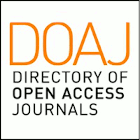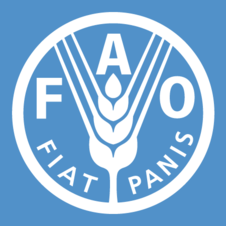EFECTO DE LA DIETA SOBRE LA MODULACIÓN DE LA MICROBIOTA EN EL DESARROLLO DE LA OBESIDAD
DOI:
https://doi.org/10.29105/respyn17.1-5Palabras clave:
microbiota, tratamiento dietético, obesidadResumen
Hoy en día, la microbiota gastrointestinal se ha transformado en un tema de investigación dinámica para dilucidar su relación con la dieta y la salud metabólica del huésped. En los últimos años se ha reconocido que la microbiota intestinal presenta una interacción estrecha en la regulación de la homeostasis inmune humana y el metabolismo, esto con lleva a nuevas oportunidades para la prevención de la obesidad y las enfermedades metabólicas asociadas como la diabetes tipo 2, para generar estrategias en el tratamiento de enfermedades metabólicos y sobre todo en esclarecer la prevalencia de la obesidad. En recientes investigaciones se ha establecido elementos que permiten establecer a la microbiota intestinal como un mediador sobre el impacto de la dieta, el estado metabólico y el peso corporal del huésped. Los mecanismos que permite una relación de la microbiota del intestino con la obesidad son generados mediante la combinación de modelos con animales de experimentación y ensayos clínicos. El reto fundamental del tema es la capacidad en establecer la causalidad de la relación entre la nutrición, la microbiota y la salud del huésped, así como los factores que inciden sobre los cambios en el peso corporal del individuo.
Palabras clave: microbiota, tratamiento dietético, obesidad.
ABSTRACT
Today, the gastrointestinal microbiota has been transformed into a dynamic research topic to elucidate its relationship with diet and metabolic health of the host. In recent years it has been recognized that the intestinal microbiota presents a close interaction in the regulation of human immune homeostasis and metabolism, leading to new opportunities for the prevention of obesity and associated metabolic diseases such as type 2 diabetes, to generate strategies in the treatment of metabolic diseases and especially in clarifying the prevalence of obesity. Recent research has established elements that allow establishing the intestinal microbiota as a mediator on the impact of diet, metabolic status and body weight of the host. The mechanisms allowing a relationship of the intestinal microbiota with obesity are generated by combining models with experimental animals and clinical trials. The fundamental challenge of the subject is the ability to establish the causality of the relationship between nutrition, microbiota and the health of the host, as well as the factors that influence the changes in the individual's body weight.
Keywords: microbiota, dietary treatment, obesity.
Descargas
Métricas
Citas
Angelakis, E., Armougom, F., Million, M., Raoult, D. (2012). The relationship between gut microbiota and weight gain in humans. Future Microbiol. 7(1); 91-109. DOI: https://doi.org/10.2217/fmb.11.142
Audrey, M., Neyrinck, Valentina, L., Schüppel, Trevor., Lockett, Dirk, Haller., Nathalie M., Delzenne. (2016). Microbiome and metabolic disorders related to obesity: Which lessons to learn from experimental models?. Trends Food Sci Technol. 57 256-264. DOI: https://doi.org/10.1016/j.tifs.2016.08.012
Bibiloni, R., Membrez, M., Jason-Chou, C. (2009) Microbiota intestinal, obesidad y diabetes. Ann Nestlé. 67; 39–48. DOI: https://doi.org/10.1159/000225915
Bik, E.M. (2009). Composition and function of the human-associated microbiota. Nutr Rev. 67 Suppl 2; S164-171. DOI: https://doi.org/10.1111/j.1753-4887.2009.00237.x
Boroni-Moreira, A. P., Salles-Teixeira T.F., do C Gouveia-Peluzio, M.,. de Cássia Gonçalves-Alfenas, R. (2012). Gut microbiota and the development of obesity. Nutr Hosp. 27(5); 1408-1414.
Brahe, L. K., Astrup, A., Larsen, L.H. (2016). Can We Prevent Obesity-Related Metabolic Diseases by Dietary Modulation of the Gut Microbiota? Adv Nutr. 7; 90–101. DOI: https://doi.org/10.3945/an.115.010587
Bron, P.A., Kleerebezem, M., Brummer, R.J., Cani, P.D., Mercenier, A., MacDonald, T.T., Garcia-Ródenas, C.L., Wells, J.M. (2017). Can probiotics modulate human disease by impacting intestinal barrier function? Br J Nutr. 117(1); 93-107. DOI: https://doi.org/10.1017/S0007114516004037
Farías, N. M. M., Silva, B. C., Rozowski, N. J. (2011). Gut Microbiota: Role In Obesity. Rev Chil Nutr 38(2); 228-233. DOI: https://doi.org/10.4067/S0717-75182011000200013
García-Díaz, D. F., Reyes-Farías, M., Ovalle-Marín, A. (2014). Bioactive compounds and inflammation linked to obesity. Rev. chil. endocrinol. Diabetes. 7 (1); 21-24.
Gotteland, M. (2013). The role of intestinal microbiota in the development of obesity and type-2 diabetes. Rev. chil. endocrinol Diabetes. 6 (4); 155-162.
Icaza-Chávez, M. E. (2013). Microbiota intestinal en la salud y la enfermedad. Rev Gastroenterol Mex. 78(4); 240-248. DOI: https://doi.org/10.1016/j.rgmx.2013.04.004
Kadooka, Y., Sato, M., Imaizumi, K., Ogawa, A., Ikuyama, K., Akai, Y., Okano, M., Kagoshima, M., Tsuchida, T. (2010). Regulation of abdominal adiposity by probiotics (Lactobacillus gasseri SBT2055) in adults with obese tendencies in a randomized controlled trial. Eur J Clin Nutr. 64 (6);636-643. DOI: https://doi.org/10.1038/ejcn.2010.19
Kawior I, Katz M., Cappelletti A, Ackermann M, Álvarez M, Anger V, Armeno M, Cafaro L., Cudi, T., Harwicz, P., Sáenz, S., Viñuales, M., Giannini, M. (2014). Microbiota Intestinal-Huésped: ¿Nexo Salud–Enfermedad?. Actualización en Nutrición. 15(2); 24-32.
McAllister, E.J., Dhurandhar, N.V., Keith, S.W., Aronne, L.J., Barger, J., Baskin, M., Benca, R.M., Biggio, J., Boggiano, M.M., Eisenmann, J.C., Elobeid, M., Fontaine, K.R., Gluckman, P., Hanlon, E.C., Katzmarzyk, P., Pietrobelli, A., Redden, D.T., Ruden, D.M., Wang, C., Waterland, R.A., Wright, S.M., Allison, D.B. (2009). Ten Putative Contributors to the Obesity Epidemic. Crit Rev Food Sci Nutr. 49(10); 868-913. DOI: https://doi.org/10.1080/10408390903372599
Musso, G., Gambino, R., Cassader, M. (2011) Interactions between gut microbiota and host metabolism predisposing to obesity and diabetes. Annu Rev Med. 62; 361-380. DOI: https://doi.org/10.1146/annurev-med-012510-175505
Rodríguez, J. M., Sobrino, O. J., Marcos, A., Collado, M.C., Pérez-Martínez, G., Martínez-Cuesta, M C, Peláez, C., Requena, T. (2013). ¿Existe una relación entre la microbiota intestinal, el consumo de probióticos y la modulación del peso corporal?. Nutr Hosp. 28 (1); 3-12.
Sanz, Y., Santacruz, A., Dalmau, J. (2009). Influencia de la microbiota intestinal en la obesidad y las alteraciones del metabolismo. Acta Pediatr Esp. 67(9); 437-442.
Scarpellini, E., Campanale, M., Leone, D., Purchiaroni, F., Vitale, G., Lauritano, E.C., Gasbarrini, A. (2010). Gut microbiota and Obesity. Intern Emerg Med. 5 (1); S53-S56. DOI: https://doi.org/10.1007/s11739-010-0450-1
Schwiertz, A., Taras, D., Schafer, K., Beijer, S., Bos, N.A., Donus, C., Hardt, P.D. (2010). Microbiota and SCFA in lean and overweight healthy subjects. Obesity. 18 (1); 190-195. DOI: https://doi.org/10.1038/oby.2009.167
Vrieze, A., Holleman, F., Zoetendal, E.G., de Vos W.M,, Hoekstra, J.B., Nieuwdorp, M. (2010). The environment within: how gut microbiota may influence metabolism and body composition. Diabetologia. 53(4); 606-613. DOI: https://doi.org/10.1007/s00125-010-1662-7
Xu, W.T., Nie, Y.Z., Yang, Z., Lu, N.H. (2016). The crosstalk between gut microbiota and obesity and related metabolic disorders. Future Microbiol. 11; 825-836. DOI: https://doi.org/10.2217/fmb-2015-0024
Zoetendal, E.G., Vaughan, E.E., de Vos W.M. (2006). A microbial world within US. Mol Microbiol.; 59(6), 1639-1650. DOI: https://doi.org/10.1111/j.1365-2958.2006.05056.x
Descargas
Publicado
Cómo citar
Número
Sección
Licencia
Los derechos del trabajo pertenecen al autor o autores, sin embargo, al enviarlo a publicación en la Revista Salud Pública y Nutrición de la Facultad de Salud Pública y Nutrición de la Universidad Autónoma de Nuevo León, le otorgan el derecho para su primera publicación en medio electrónico, y posiblemente, en medio impreso a la Revista Salud Pública y Nutrición. La licencia que se utiliza es la de atribución de Creative Commons , que permite a terceros utilizar lo publicado siempre que se mencione la autoría del trabajo y a la primera publicación que es en la Revista Salud Pública y Nutrición. Asimismo, el o los autores tendrán en cuenta que no estará permitido enviar la publicación a ninguna otra revista, sin importar el formato. Los autores estarán en posibilidad de realizar otros acuerdos contractuales independientes y adicionales para la distribución no exclusiva de la versión del artículo publicado en la Revista Salud Pública y Nutrición (p. ej., repositorio institucional o publicación en un libro) siempre que indiquen claramente que el trabajo se publicó por primera vez en la Revista Salud Pública, Revista de la Facultad de Salud Pública y Nutrición de la Universidad Autónoma de Nuevo León.














